Lena Klenke is a name that has become indispensable in the German acting scene.
LENA KLENKE FOR FRÄULEIN DIGITAL
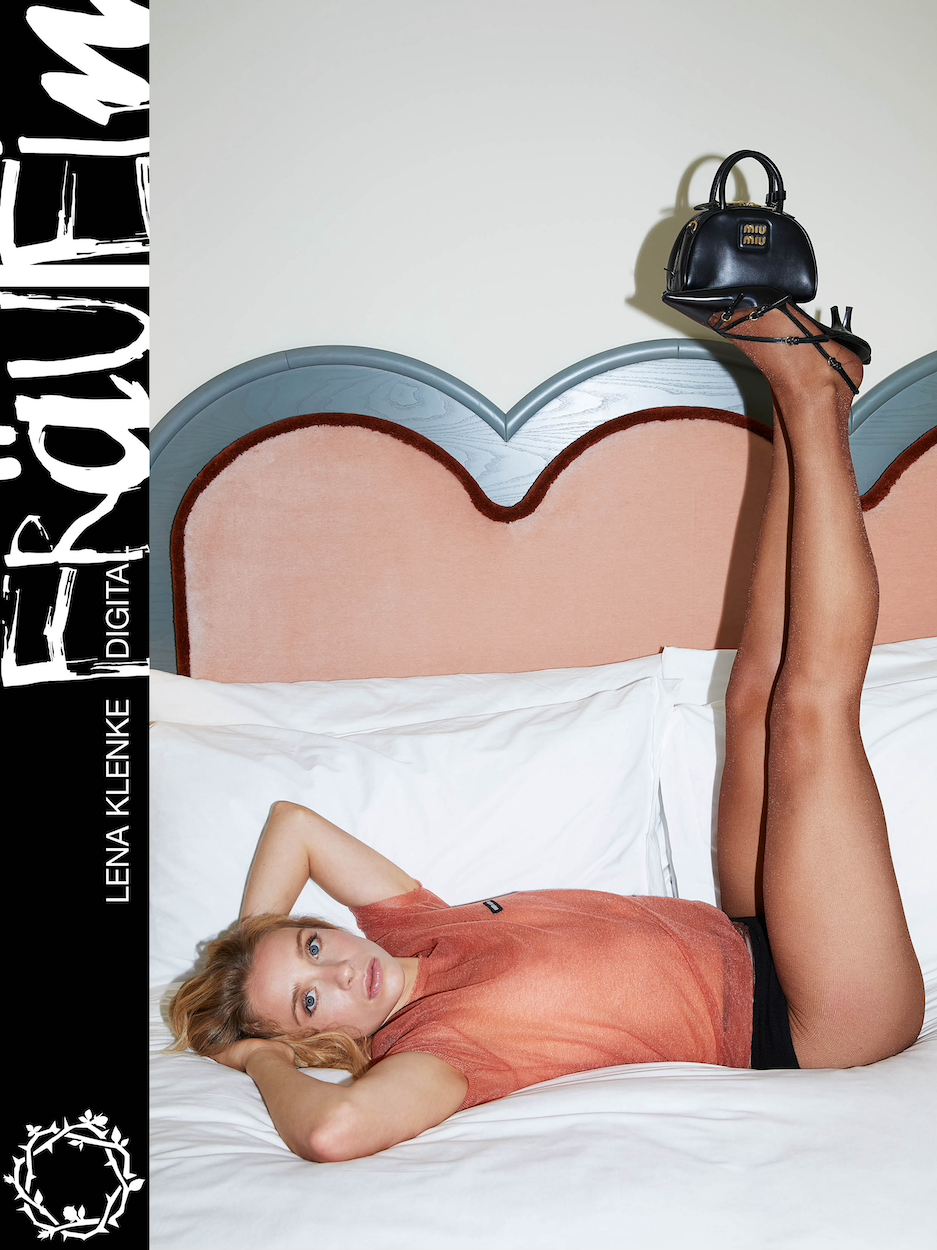
Lena, how were your last weeks? I heard that you were in Rome and played a lot of tennis…
Yes, I was in Rome all summer, filming a new movie, where I played Steffi Graf. It was really hot, but so much fun. So yes, lots of tennis, lots of sweating, lots of work but in this beautiful city, that took my heart away.
You didn’t do any classical acting training per se, how did it finally come about that you are where you are now?
Good question, I ask myself that all the time. Let me know if you have an answer haha.
You are now a permanent fixture on the German acting scene. When you look at acting as a big picture: What do you think makes good acting today? And what are the biggest challenges for you personally?
Wow, that’s really interesting. Good acting is really personal in my opinion, but when I watch a movie and get completely sucked into the story, forget everything around it, and feel everything the characters are going thru, then that’s good acting to me. Challenges change all the time, but overall the biggest challenge is to stay true to yourself, stop looking so much left and right, what everybody else is doing and trust the process you’re in.
To what extent has acting influenced or changed you as a person? Did you become more emphatic or open to other characters and look a little more behind the facades of humans?
I don’t really know how it changed me because I have no comparison to how different I would be if I wouldn’t be acting. But since I started so young it definitely shaped me as a person. Every character is so different and you definitely take a little bit of every character you played with you and I feel like it lives with you for a while.
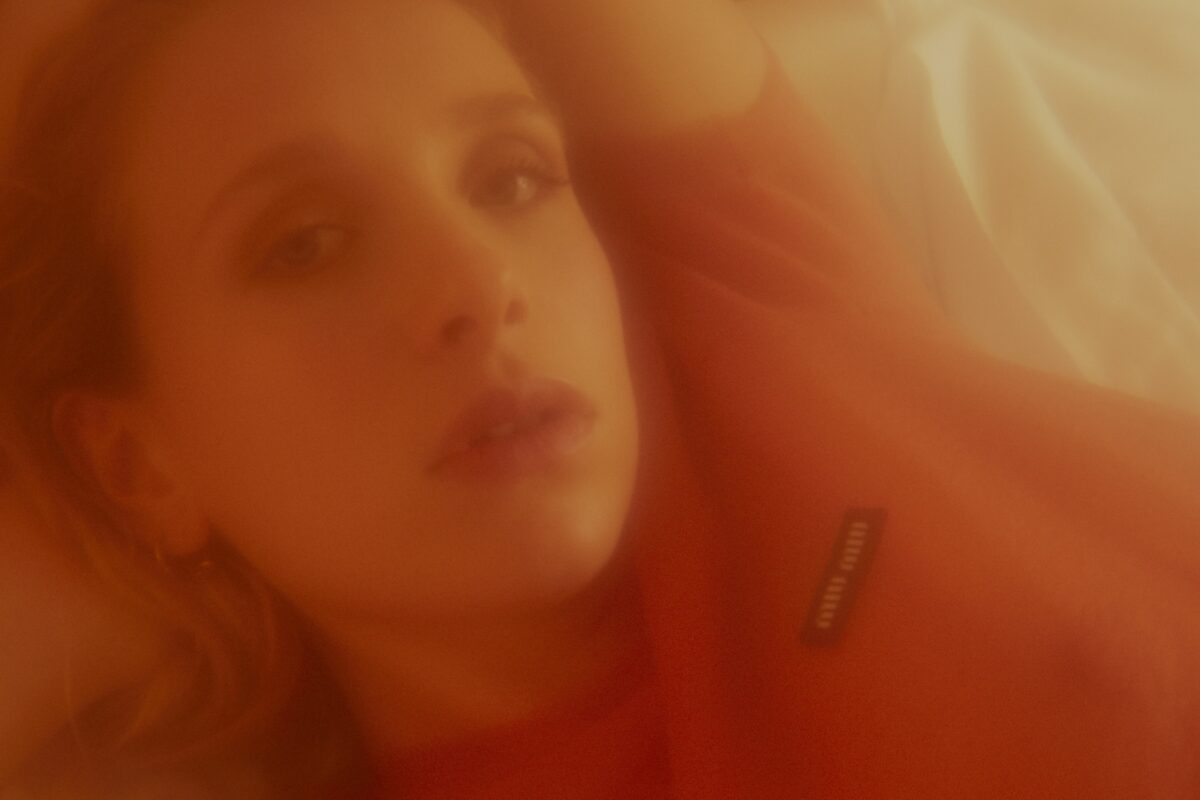
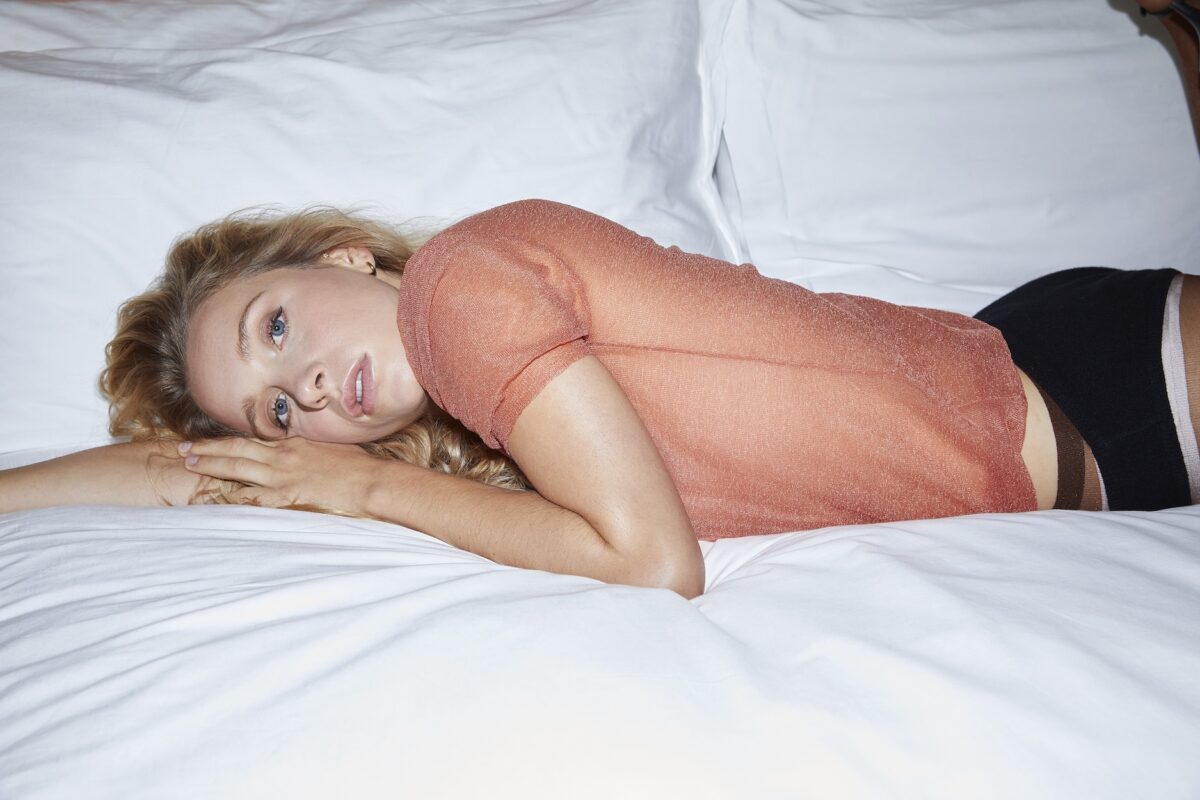
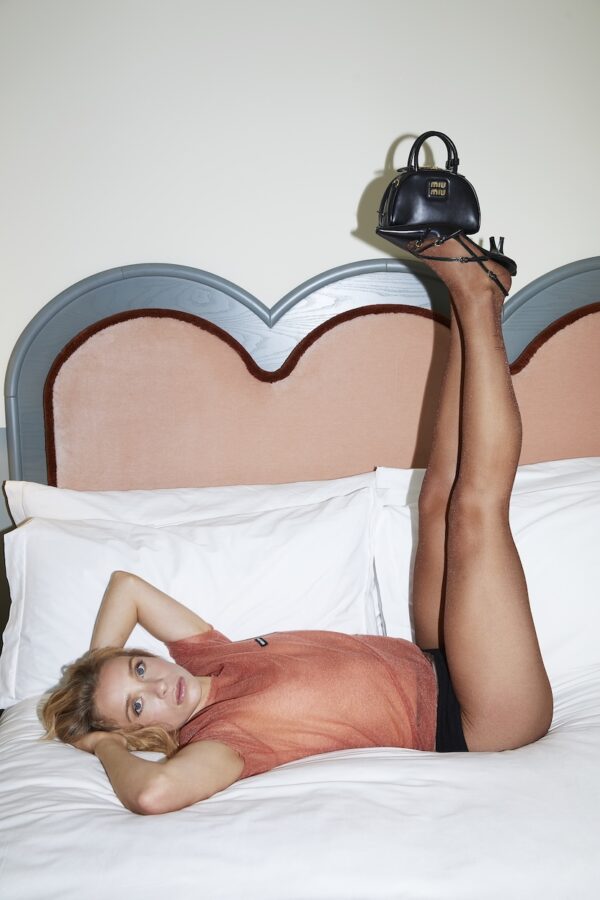
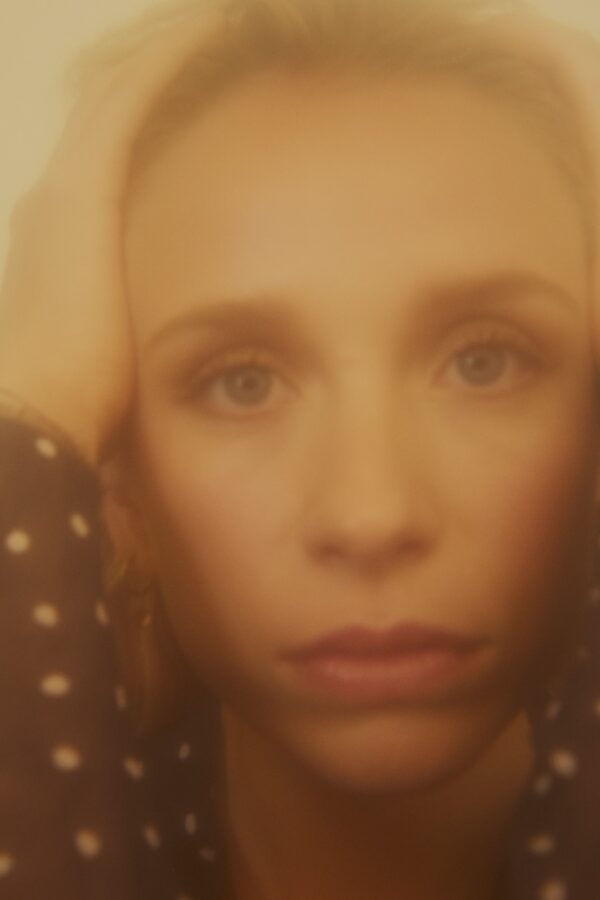
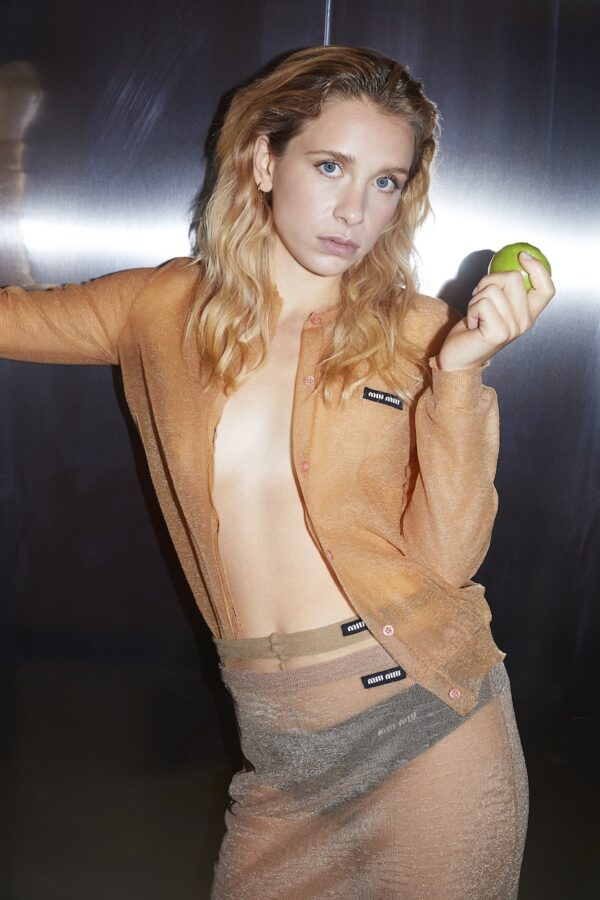

In acting, you primarily slip into other roles. How much Lena do you induce the personalities you portray?
I mean I am myself, I will always bring Lena into every character and that’s also what people forget when they watch a movie, every actor is casted because he/she brings something into it that makes the character round. Some people fit better for other characters than others.
Currently you can be seen in the coming-of-age drama ‘Flunkeyball’ by Alexander Adolph in which you embody the emotionally unstable Zoe, who finds love and then disappears. When you think about your youth, what emotions resonate for you when you star in films like these? What were your first thoughts about your character Zoe?
Zoe is a very complex character because she has bipolar and schizophrenic traits and you never know what happens next with her. She is a very lost soul and when I first read the script I felt for her so much and really wanted to dig deeper into her story. Its so interesting to play someone like her but also very challenging, because a lot is going on inside of her which we don’t see. But I loved playing Zoe and working on this movie, it was something I never did before and of course the more complex a character is the more fun it is to play.
In what ways are you and Zoe similar or different?
Zoe is very different than I am but I loved that.
Zoe’s character also shows certain traits of mental illness, especially bipolar tendencies. Currently, you can observe in society that we are dealing with the topic of mental health more and more openly. Do you think it’s important to give a certain form of representation in film to counteract the cliché? And isn’t it incredibly difficult to give the whole thing a space without further stigmatizing a clinical picture?
Very much. In my mind the whole time I was playing Zoe I was trying to satisfy all of these thoughts but also don’t be so influenced by it and still focus on myself and the version I wanted to show of Zoe. Our director Alexander was really helpful during this process because I could always ask him anything and he also met people with actual tendencies like Zoe and we talked a lot how to show this without humiliating or underestimating mental illnesses like these.

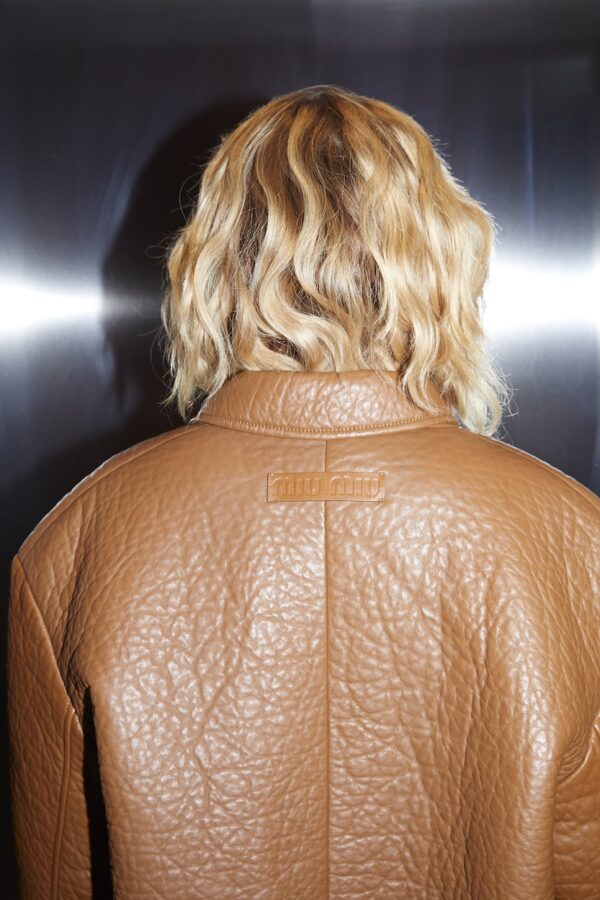
Did that do something to you emotionally, to let yourself fall into this instability, did that transfer to your own emotional state? How do you decouple yourself from that, or from a character in general when coming home?
It for sure did something to me. Almost every night after filming I went for a run and took a really hot shower in order to let go of things we were filming during the Day and distance myself from what she want through. And every morning I listened to a playlist I made for my character and get back in tune with her. These are some routines I like to keep up during filming in order always give 100 % but also don’t lose myself during filming.
What does a role/character in general have to have to convince you to want to play it? And how do you prepare for your roles?I need to see something in the character that challenges me and that I like to explore, also the script needs to catch after a few pages otherwise I cant get myself to continue reading it. There are so many stories which have been told but still every story can be different and thus every movie and when it just has something that gets me interested I like to follow this feeling and explore how I can add something to the project. I prepare a lot by myself but when I`m stuck I try to work with different coaches I met over the years or talk to my director and other people in my close circle who inspire me. Physicial movement also helps me a lot for my characters because you just feel differently when you use your body. I like to learn my lines while running, I make playlists for my character and then dance to them in a dark room. Sounds weird but works, haha.
Could you, theoretically, imagine yourself creating a story someday and being on the other side? What would be your first idea that pops into your head?
Oh yes I could. Some Ideas also have been written down, but I´ll let you know once that takes further steps.
If you now look at your future career: Is there a role you would absolutely want to play, a genre you would want to try out?
If I talk about that, it wont happen. I am very superstitious in that way
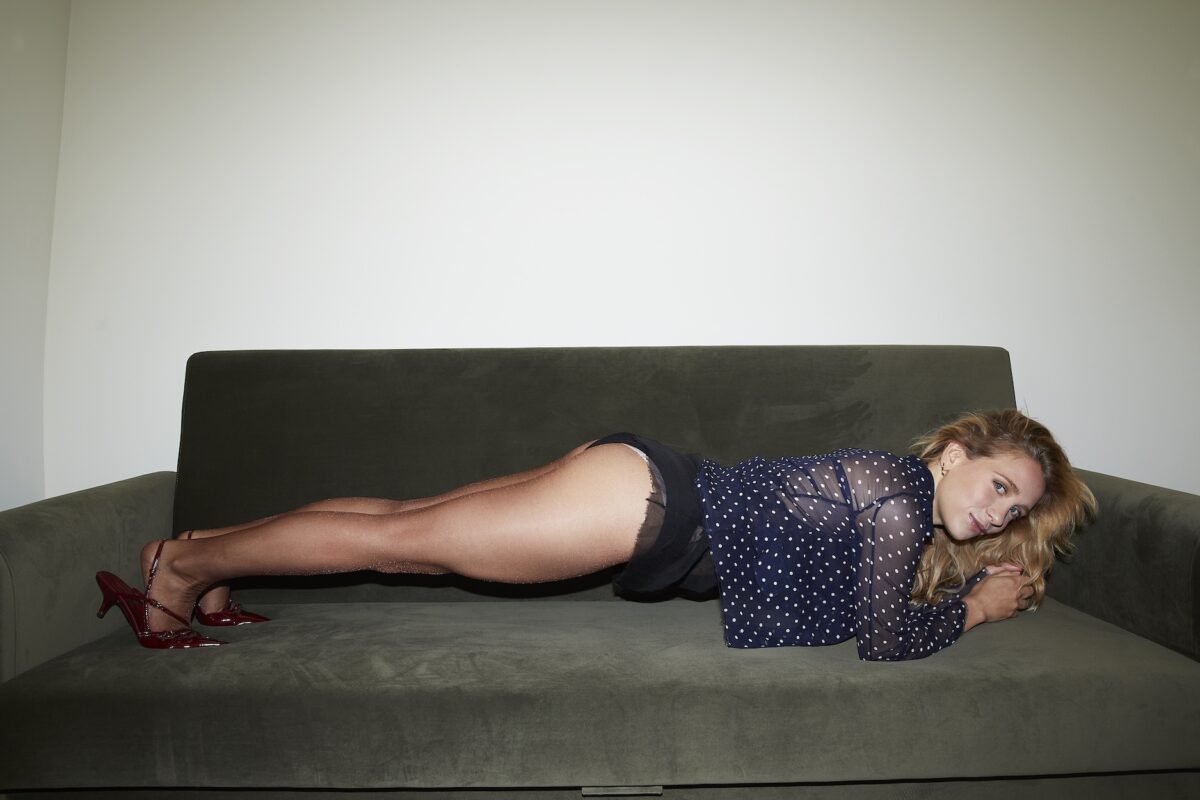
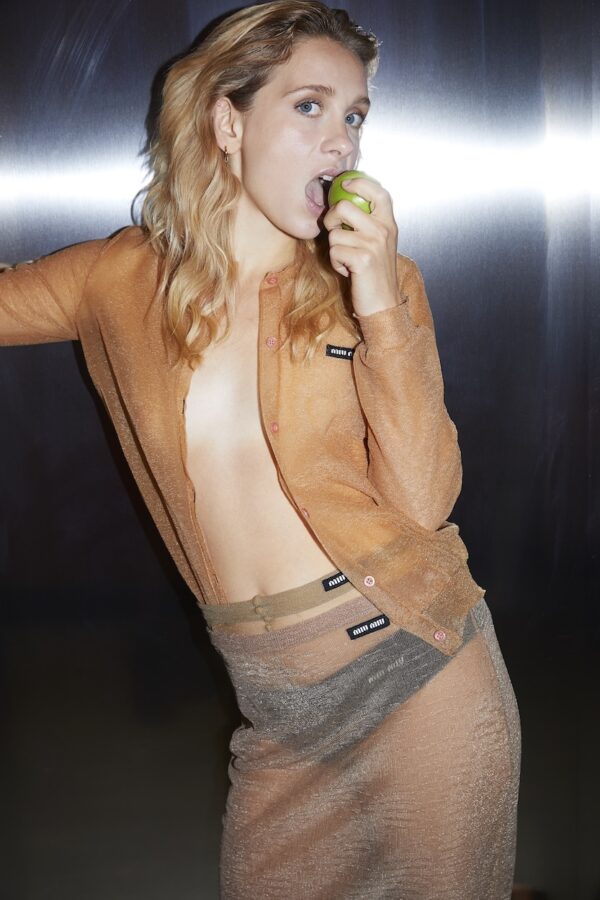
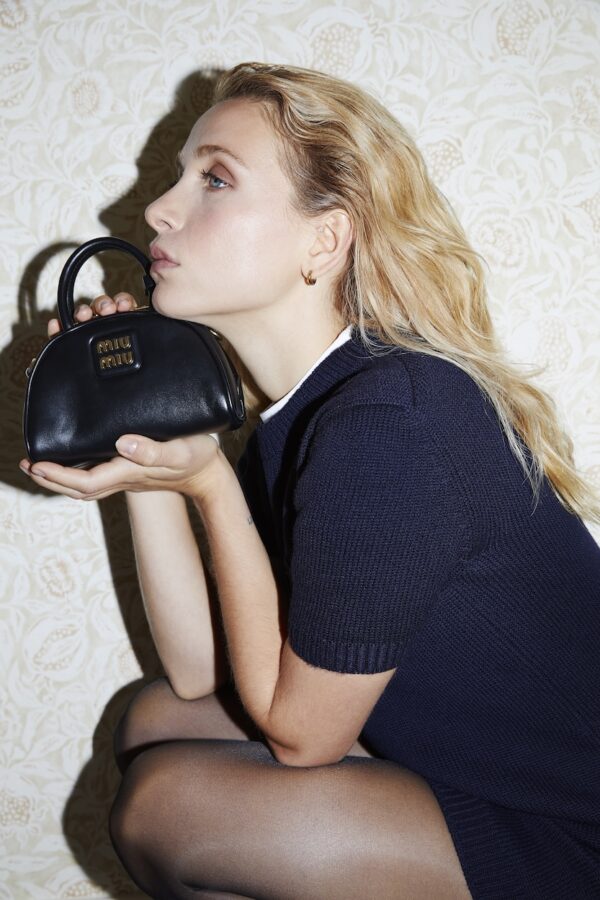


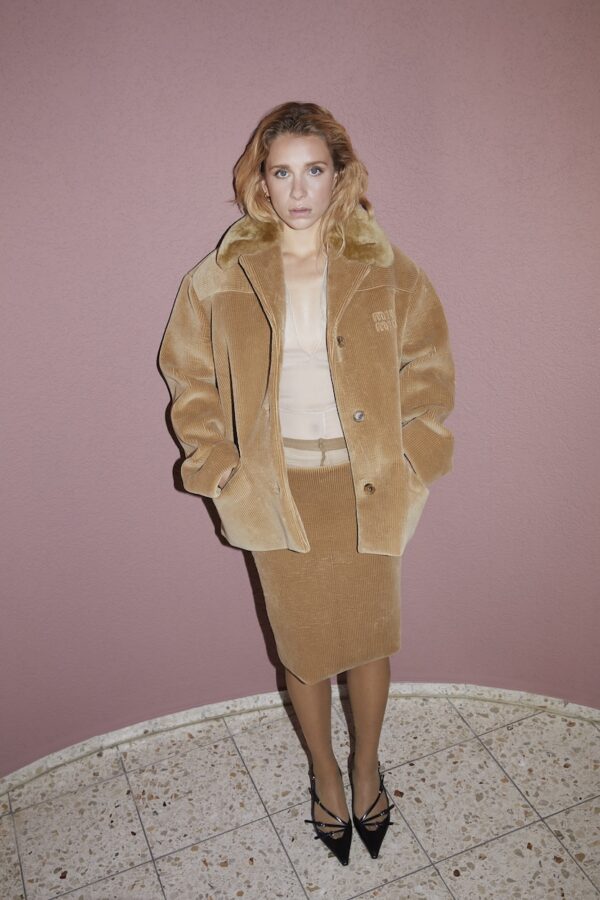
Interview CAROLIN DESIREE BECKER
Photography RONALD DICK
Styling JEANNA KRICHEL
Makeup & Hair DIELLZA JAHIRI at BIGOUNDI using NARS cosmetics
Production CAROLIN DESIREE BECKER
Styling assistant MIKA BAUM
Talent LENA KLENKE
All Looks MIU MIU FW23
Special thanks to THE HOXTON Hotel Charlottenburg